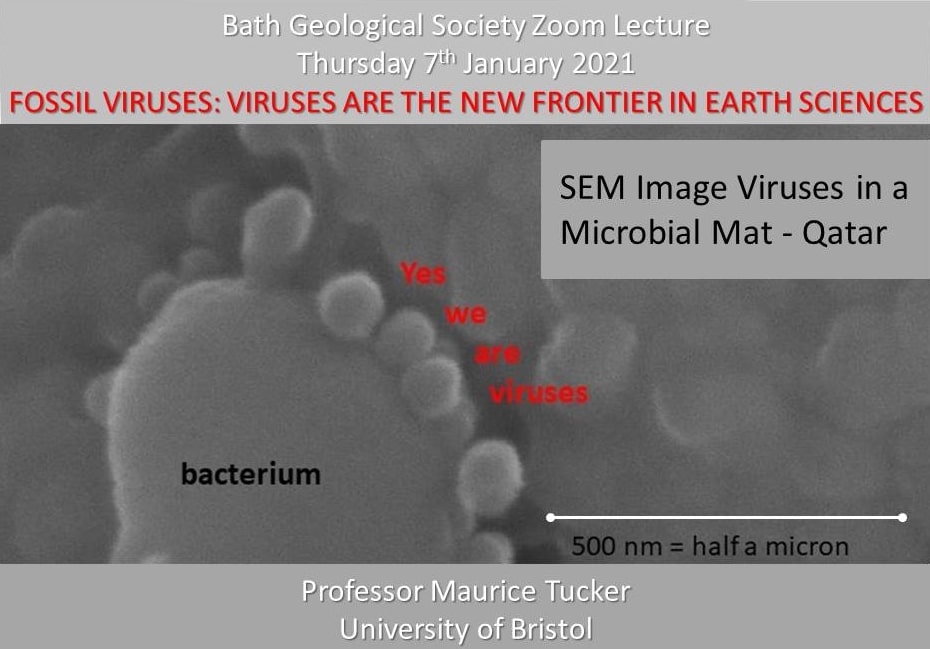Lecture: Fossil Viruses: Viruses are the New Frontier in Earth Sciences
Speaker:
Date and Time
19:00 -
Location
Virtual Talk via Zoom
Lecture Description

This lecture will be held virtually via zoom.
Viruses are constantly in the news these days, unfortunately, but what about their geological history? Are viruses preserved in the fossil record, considering they are so small and you can’t even see them? If they are, how does that happen and how far back do they go? And what about the roles of viruses in the environment? Are they significant or were they just the nasty invisible parasites we regard them to be today, disrupting life as we know it? Or are they both – good and bad?
Viruses need bacteria and animal-plant cells for their replication; they are obligate intracellular parasites. From a geological point of view we know a lot about bacteria and their history: the earliest form of life, from the Archean, creating stromatolites, precipitating minerals (carbonates, phosphates, iron etc.), infecting plants and animals and causing disease, bottom of the food chain, and present everywhere in enormous numbers. But present in even greater numbers are viruses, and everywhere too: all sedimentary environments including extremes, deep subsurface, hot smokers, rain (and Mars?), and significant effects as well: killing bacteria and higher organisms, recycling organic matter, providing nutrients. But the roles of viruses have rarely been considered in geological processes. Viruses are the new frontier in Earth Sciences.
Professor Maurice Tucker is a visiting at the University of Bristol. Maurice does research in carbonate sedimentology and diagenesis. He has had a long association with the university of Durham but since retiring and moving to Bath he has been an active member of the Bath Geological Society.
